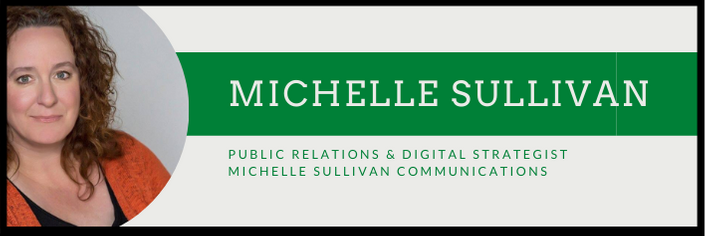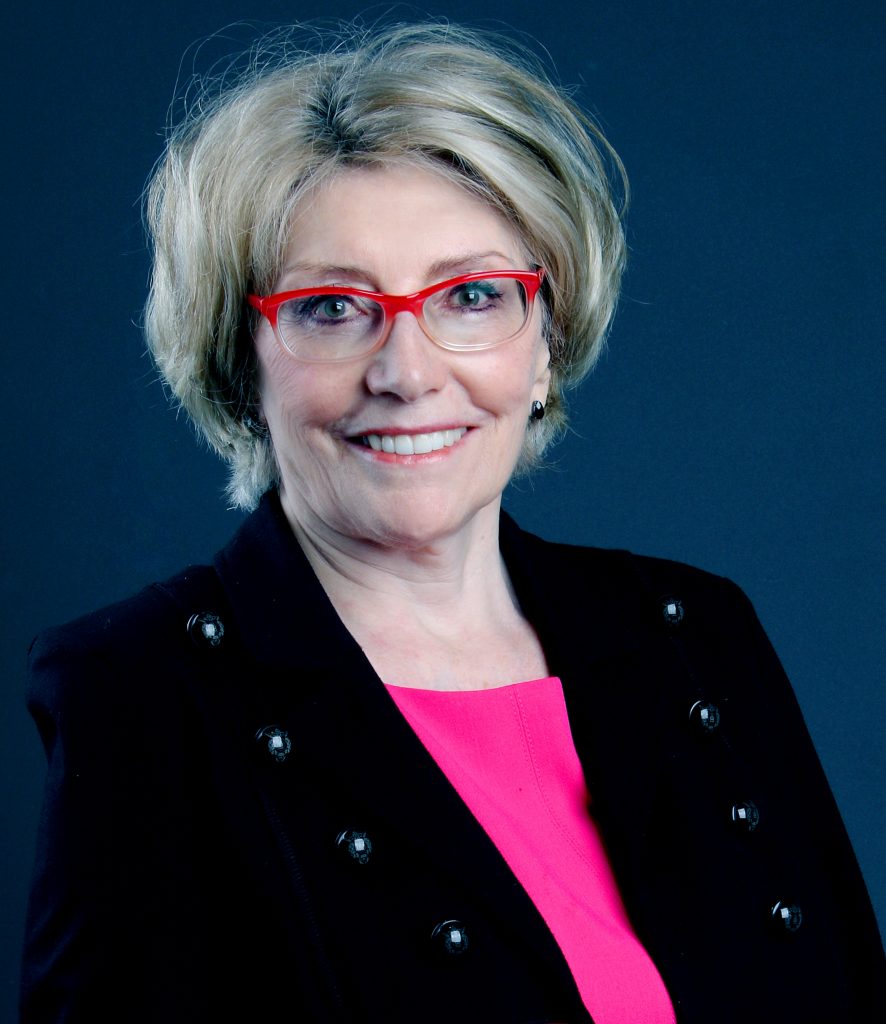Published Date: November 11th, 2020
Irene Woods: A step ahead on the road less travelled

How does one go about opening a private school in Quebec? In the latest instalment of our ‘TRAILBLAZERS’ series, Michelle Sullivan talks to Cork native Irene Woods who emigrated to Montreal by way of Nigeria more than 40 years ago and founded an English-language private school, Kells Academy. With campuses in Notre-Dame-de-Grâce for K-to-12 students and Westmount catering to high school students, Kells has always taken the road less travelled, offering each student a personalized experience from the moment they step through the door. This appetite for innovation makes Irene Woods a true trailblazer and inspirational entrepreneur within Montreal’s Irish community.

Michelle Sullivan: Tell us about your early years in Canada
Irene Woods: I left Ireland for Montreal in 1970. I had worked as a biochemist at University College Dublin, and enrolled in a PhD program at McGill. I loved the intellectual stimulation but I am also very much a people person. I came to realize working alone for long hours in a lab was not for me, so I began looking for new opportunities.
After leaving McGill, I became what was then called a “free-flow” teacher with the Vaudreuil-Soulanges school board. I was given the mandate to teach students who were struggling in the classroom. I discovered I could become a much more effective teacher if I understood the specific challenges each individual student faced. Teaching these small tutorial groups became interesting and even joyful – especially as I could see the difference it was making in the scholastic life of my students. In retrospect, I would say that this experience was a turning point for me as I slowly came to realize what it takes to achieve academic success. This tutorial model laid the foundation of what would later become Kells Academy.
MS: How did you come to found Kells Academy?
IW: Our beginnings were humble. I first set up the Westmount Learning Centre in 1974 as a tutorial service. Within a year, I had parents entreating me to start a school as they felt that their children enjoyed and learned more in the single hour under the tutorial model than over several hours in the traditional classroom. Over the next couple of years, the Westmount Learning Centre became Kells Academy, a full-time kindergarten-to-grade-12 school with a firm focus on an individualized approach to learning.
Kells has grown from an initial cohort of 10 students in 1974 to approximately 400 students now. This includes a very diverse group of students from across Greater Montreal as well as international students representing a wide range of languages and cultures from regions such as Asia, the Middle East and South America. We quickly found that the tutorial approach worked not only with students who struggled to learn, but with all of our students. It was particularly suited to the diverse international student population who had to adapt not only to a new country and culture, but also to a new curriculum in what was not their first language.
Today at Kells, each student’s program is tailored to his or her specific needs. This has led to our setting up the Language Learning Center where students can spend some time learning English in an accelerated setting, rather than have to struggle both with the language and the curriculum in the classroom. Coping with academics then becomes much easier once these fundamentals are in place. Similarly, when students with learning challenges such as dyslexia or attention issues enroll at Kells, we make an effort to understand how they learn and adapt our teaching methods accordingly. Instead of fitting students to the traditional set mold, we adapt our pedagogical techniques to fit each student’s needs.
Our students benefit from Kells’ programs like Flex, where time is built into the schedule for the exploration of personal interests. Some of our students choose to take this time to explore fields like robotics, the arts or public speaking. It helps bring joy into the learning process, which is a key to creating life-long learners. We aim to make learning really exciting. Curriculum is important, and is a guide, but you have to really go above and beyond. You have to take students’ interests, strengths and challenges into account – always.
At Kells, we strongly believe that each student is capable of learning and that a standardized teaching model is not suitable for all. This personalized approach to learning has always been the raison-d’être for our existence and the secret to our success.
MS: How did you find working within the Quebec context, as a new arrival and budding entrepreneur?
IW: I found Quebec to be very friendly to entrepreneurs. It’s an incredible place to do business. Over the years, I’ve started special education schools, regular schools and a language school. It has always struck me how cooperative and helpful Quebeckers are. I felt so welcomed, even if I didn’t speak the language. On occasion, representatives from the Ministry would only speak French, which was a challenge for me as an Irish immigrant, but I couldn’t believe how good they were in providing me with every assistance. For example, we recently requested a Ministry permit to open an annex for our English Language learners. This was an innovative model for a high school and something and entirely new for them, but they were very open to the concept.
Setting up any new enterprise requires financial backing. I’ve also found banks very helpful. I started in the days when business wasn’t that friendly to women, yet the banks became my teachers. I’m a self-taught entrepreneur. I don’t come from a business background and have no experience with it. It was through the banks that I learned how to read a balance sheet. With time, I became more business savvy as I came to learn and understand their requirements for getting a loan.
Quebec is a very friendly environment and gives entrepreneurs a wonderful opportunity to flourish. Networks are important. I’ve found that it’s easy to make contacts and to get people to help you. People are very enthusiastic here. It is part of the “new world” and has a totally different mind-set and way of thinking as compared to Europe.
MS: What advice do you have for budding entrepreneurs?
IW: Believe in yourself. I do feel there is such a thing as a natural born entrepreneur, but I also think you can learn as you go along. I obviously found a niche in the community. If you offer something unique, and put in the hard work, your business idea can become a reality.
The biggest hurdle can often be a lack of start-up money. Starting small is OK. Once your clients realize you’ve got something worthwhile, your business will expand. Kells’ precursor, the Westmount Learning Centre, started with only 10 students and grew from there.
MS: Where does Nigeria fit into your career path?
IW: In my early 20s, I accepted a two-year contract to teach chemistry and math at a Nigerian school. When the school principal died unexpectedly, I took on his role as well. I was 22 years of age, with no teacher training. It was a formative experience, to say the least. The students were very keen, and eager to share their culture. I learned the importance and richness of cultural exchange from them.
Understanding culture is such an important part of a teacher’s success. At Kells, we’ve done very well helping both our local and international students succeed here in Quebec. This includes the children of refugee families sponsored by Kells, many of whom have fled very difficult situations. It begins with our intake process. We know a lot about all our students before they even set foot in our classrooms. We map out a strategy that ensures they are in the right grouping and have access to our excellent resource team. The freedom of thought, speech and action that our Canadian culture permits can be challenging for students from a different background. Our teachers adapt their methods to help our international students bridge the inevitable knowledge and culture gaps.
I’m grateful for my time in Nigeria. My experiences there at a relatively young age, molded me into a more well-rounded educator. I am happy that I was able to incorporate those values of joy, inclusivity and mutual respect that I learned there to Kells. They remain the keystones of our school culture to this day.
MS: How has your family integrated into Quebec life and culture?
IW: I have two grown children who were born, raised and educated in Montreal. My daughter is now in British Columbia working as a teacher, including the teaching of French, whereas my son is a doctor and an ENT specialist who also teaches at l’Université de Montréal. He is married to a doctor of French-Quebec ancestry and they have two children. We are now truly Québécois and Canadian!
Irene Woods is a longstanding member of the Ireland Canada Chamber of Commerce – Montreal. She serves on the Board of Trustees of the Canadian Irish Studies Foundation and on the Advisory Board of McGill University’s International Community Action Network.
For more information about Kells Academy go to: www.kells.ca.
Kells is a client of Michelle Sullivan Communications.
| Covid-19: How Kells is meeting the challenge When schools across Quebec were plunged into distance learning overnight in response to the Covid-19 pandemic, Kells Academy didn’t miss a beat. Immersed in technology for more than a decade, Kells has emerged as a leader in the field of online teaching. Kells was able to adapt quickly to a new virtual environment, ensuring its students didn’t miss a single day of class. This smooth transition has, in great part, been due to the far-sightedness of Irene Woods who envisioned the importance of technology in learning over a decade ago. She recognized that cutting edge technology would free the teachers time to teach more creatively and allow them to put more emphasis on pedagogy. The staff readily accepted the new challenges. Ten years later, when the pandemic crisis struck, Kells staff was already comfortable working with technology and had no problem switching to online teaching within a very short time period. That same openness to technology is now serving Kells well as the school’s teachers, students and administrators navigate the restrictions forced on by the pandemic. For example, Kells has adapted to meet the needs of students in the Middle East and Asia by implementing a flexible teaching schedule that takes a variety of time zones into account. Thanks to web conferencing solutions, guest lecturers from around the world are accessible to students and teachers who have found creative ways to ensure that their online classrooms remain dynamic. The technology department at Kells works closely with the teachers, adapting to their changing needs. This collaboration has resulted in the best possible outcome for the students. The school’s adaptability and resilience in the face of challenges and adversity has only highlighted its frontier spirit as Kells Academy continues to grow from strength to strength. |